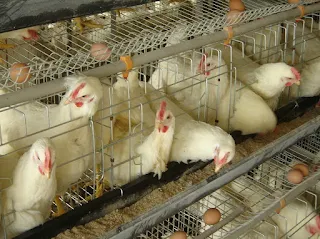Bird-to-human transmission of avian flu is very rare and has previously only occurred a small number of times in the UK.
The person acquired the infection from very close, regular contact with a large number of infected birds, which they kept in and around their home over a prolonged period of time.
All contacts of the individual, including those who visited the premises, have been traced and there is no evidence of onward spread of the infection to anyone else. The individual is currently well and self-isolating.
The risk to the wider public from avian flu continues to be very low. However, people should not touch sick or dead birds.
Avian flu, also known as bird flu, is a type of influenza that spreads among birds. The UK has recently seen a large number of outbreaks and incidents of avian influenza in birds across the country of the H5N1 strain and Animal and Plant Health Agency (APHA) and the UK’s Chief Veterinary Officer have issued alerts to bird owners.
Some strains of bird flu can pass from birds to people, but this is extremely rare. It usually requires close contact with an infected bird, so the risk to humans is generally considered very low. Human-to-human transmission of bird flu is very rare.
The case was detected after APHA identified an outbreak of outbreak of the H5N1 strain of avian flu in their flock of birds. Their infection was identified through the routine monitoring which is conducted on anyone who has close contact with infected birds. The infected birds have all been culled.
In line with the highly precautionary approach that the UK Health Security Agency (UKHSA) takes to identifying and stopping the transmission of avian flu, UKHSA swabbed this person and detected low levels of flu. Further laboratory analysis revealed that the virus was the ‘H5’ type, found in birds.
At this point it has not been possible to confirm that this is a H5N1 infection (the strain that is currently circulating in birds in the UK). Based on the available evidence, the World Health Organization (WHO) has been notified.
This is the first human case of this strain in the UK, although there have been cases elsewhere globally.
We also swab people even if they don’t have symptoms, to help our surveillance programmes and make sure we identify anyone infected so that we can take action to control any risk of transmission.
UKHSA follows up all individuals who have been in contact with a confirmed case of avian influenza. For those with the highest risk exposures, we contact them daily to see if they have developed symptoms so that we can take appropriate action.
People are also offered anti-viral treatment after exposure to infected birds. This is to stop the virus reproducing in their body if they have picked it up and should prevent them from becoming unwell. It also helps reduce the risk of passing the infection on to others.

























Post A Comment:
0 comments:
Leave a comment. Thanks!